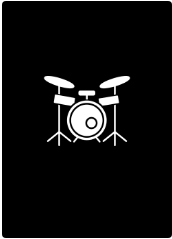In the world of music, drumming is a unique and powerful art form that has been captivating audiences for centuries. Whether you’re a budding musician or just looking for a fun hobby, drum lessons and drum classes offer an exciting opportunity to explore the world of percussion. In this article, we will delve into the benefits of taking drum lessons and the key aspects you should consider when enrolling in drum classes.
Drum Lessons for Beginners
Drum lessons are not just for aspiring rock stars or professional drummers; they are accessible to anyone with an interest in rhythm and music. Beginners, in particular, can greatly benefit from drum lessons as they provide a structured introduction to drumming techniques, musical notation, and rhythm theory.
Many drum instructors are skilled at tailoring their lessons to cater to beginners. They will start with the basics, teaching you how to hold drumsticks correctly and the fundamental drumming patterns. As you progress, you’ll learn to read drum notation, which is like a musical language specifically for drummers.
Intermediate Drummers Can Level Up
If you’ve already dabbled in drumming or consider yourself an intermediate drummer, drum classes can help you take your skills to the next level. Intermediate lessons often focus on refining your technique, exploring different drumming styles (such as rock, jazz, or funk), and building your repertoire of drumming patterns.
These classes are also an excellent opportunity to work on your sense of timing and rhythm. Drummers often play a crucial role in keeping the tempo of a band, so honing your skills in this area is invaluable.
Boost Cognitive Skills
Learning to play the drums isn’t just about creating catchy rhythms; it also has cognitive benefits. Drumming requires a strong sense of timing, coordination, and focus. Studies have shown that drumming can improve concentration and memory, making it an excellent activity for people of all ages.
Stress Relief and Emotional Expression
Drumming can be a therapeutic outlet for emotions. It allows you to express yourself through the beats and rhythms you create, helping to reduce stress and promote emotional well-being. The act of drumming can be cathartic, providing an emotional release for many people.
Physical Fitness
Drumming is not just a mental exercise; it’s a physical one too. Engaging in drumming sessions can be an enjoyable way to stay active and fit. It works out various muscle groups, especially the arms, shoulders, and core. So, not only are you learning a new skill, but you’re also keeping yourself physically active.
Location and Accessibility
When searching for the right drum class, consider its location and accessibility. Is it conveniently located for you, and does the schedule align with your availability? You don’t want to miss out on valuable lessons because of logistical issues.
Instructor Qualifications
An experienced and knowledgeable instructor can make a world of difference in your learning journey. Look for instructors who have a strong background in drumming, as well as teaching experience. Reading reviews and getting recommendations from other students can be helpful in this regard.
Curriculum and Approach
Different drum classes may have varying curricula and teaching approaches. Some may focus more on technical skills, while others emphasise creativity and improvisation. Consider your personal goals and preferences when choosing a class. It’s essential that the class aligns with your interests and objectives.
Class Size
Class size can impact the quality of instruction you receive. Smaller classes often provide more personalised attention, allowing you to progress at your own pace. On the other hand, larger classes may offer a more social experience.
Dedicated Practice Time
While drum lessons provide valuable guidance and knowledge, improvement comes from practice. Set aside dedicated practice time each day or week to reinforce what you’ve learned in class. Consistency is key when it comes to mastering any musical instrument.
Online Resources
In addition to your drum classes, there is a wealth of online resources available to help you learn and grow as a drummer. You can find tutorials, sheet music, and drumming communities where you can connect with other drummers and share your experiences.
Wrapping Up
Drum lessons and drum classes offer an exciting journey into the world of percussion. Whether you’re a complete beginner or an intermediate drummer, the benefits of learning to play the drums extend far beyond just creating catchy rhythms. From boosting cognitive skills to providing stress relief and physical fitness, drumming is a holistic activity that enriches your life in various ways.
When embarking on your drumming adventure, be sure to find the right class for you by considering factors like location, instructor qualifications, curriculum, and class size. And remember, practice is the key to success. With dedication and consistent practice, you can master the beat and become a skilled drummer who can captivate audiences with your rhythmic prowess. So, don’t hesitate to explore the world of drum lessons and drum classes – it’s a journey that promises both personal and musical growth.





















